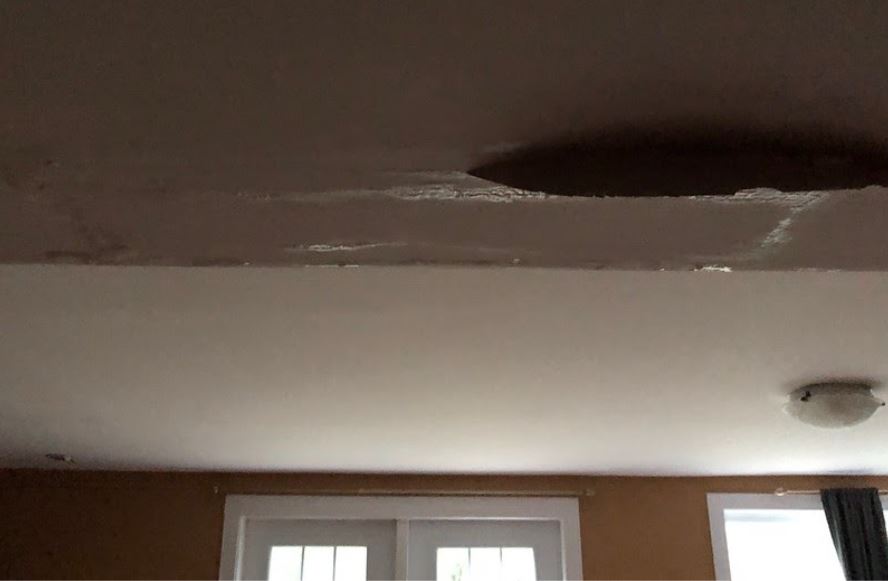A Guide to the Six Most Common Water Leak Causes in Your Home
A Guide to the Six Most Common Water Leak Causes in Your Home
Blog Article
This great article listed below about Most Common Causes of Leaky Pipes is fairly fascinating. Have a go and draw your own findings.

Leaks not just trigger waste of water but can additionally trigger unnecessary damages to your house and advertise unwanted natural growth. By recognizing and also looking for day-to-day circumstances that create leaks, you can shield your residence from future leaks and also unnecessary damages.
Elbowing in roots
Many water leaks begin outside your house as opposed to inside it. If you see an unexpected decrease in water stress, state in your tap, take time to head out as well as analyze your yard. You might see wet spots or sinkholes in your yard, and that could imply that tree origins are getting into water lines causing water to permeate out. You can have your plumber check for breach, particularly if you have trees or hedges near your building.
Rusty water systems
This may be the reason of staining or warping on your water pipelines. If our plumbing system is old, think about replacing the pipes because they are at a greater risk of corrosion than the newer designs.
Malfunctioning Pipe Joints
The factor at which your pipelines attach is frequently the weakest link in the waterline. Pipe joints can deteriorate in time, resulting in water leaks. The bulk of pipe joints are not easily visible. If you have noisy pipelines that make ticking or banging noises, especially when the warm water is activated, your pipeline joints are probably under a great deal of pressure. It is a good idea to have your plumber inspect your system annually.
Immediate temperature changes.
Severe temperature adjustments in our pipelines can trigger them to expand and also get all of a sudden. This development and tightening may cause splits in the pipelines, particularly if the temperature are below freezing. It would certainly be best if you watched on exactly how your plumbing works. The presence of the previously mentioned circumstances frequently indicates a high risk.
Poor Water Connectors
Sometimes, a leak can be brought on by loose tubes as well as pipelines that supply your devices. More often than not, changing is what causes the loose water Links. You might locate in the case of a cleaning device, a tube might spring a leakage due to trembling during the spin cycle. In case of a water links leak, you may notice water running straight from the supply line or puddles around your devices.
Blocked Drains
Obstructed drains may be irritating and also inconveniencing, but they can often wind up triggering an overflow bring about burst pipelines. Maintain removing any type of products that may decrease your drains pipes that could clog them to prevent such aggravations.
All the above are reasons for leaks but not all water leakages result from plumbing leakages; some leakages might originate from roof leaks. All leaks must be fixed right away to avoid water damages.
Leaks not only cause waste of water yet can likewise create unnecessary damage to your residence and promote unwanted organic development. By understanding as well as looking for day-to-day scenarios that create leakages, you can safeguard your home from future leaks and unnecessary damage. Today, we will look at six leak triggers that may be triggering your pipes to leak.
At times, a leak can be caused by loose pipes as well as pipes that supply your appliances. In case of a water connections leak, you might notice water running directly from the supply line or pools around your devices.
How To Check For Water Leak In Your Home
How To Check for Leaks
The average household's leaks can account for nearly 10,000 gallons of water wasted every year and ten percent of homes have leaks that waste 90 gallons or more per day. Common types of leaks found in the home are worn toilet flappers, dripping faucets, and other leaking valves. These types of leaks are often easy to fix, requiring only a few tools and hardware that can pay for themselves in water savings. Fixing easily corrected household water leaks can save homeowners about 10 percent on their water bills.
To check for leaks in your home, you first need to determine whether you're wasting water and then identify the source of the leak. Here are some tips for finding leaks:
Take a look at your water usage during a colder month, such as January or February. If a family of four exceeds 12,000 gallons per month, there are serious leaks.
Check your water meter before and after a two-hour period when no water is being used. If the meter changes at all, you probably have a leak.
Identify toilet leaks by placing a drop of food coloring in the toilet tank. If any color shows up in the bowl after 10 minutes, you have a leak. (Be sure to flush immediately after the experiment to avoid staining the tank.)
Examine faucet gaskets and pipe fittings for any water on the outside of the pipe to check for surface leaks.
Undetected water leaks can happen without the home or business owner even realizing. If you suspect a water leak, but not able to find the source. It is time to contact a professional water leak detection service, The Leak Doctor.
How To Find a Water Leak In Your Home
https://www.leakdoctor.com/blog/How-To-Check-For-Water-Leak-In-Your-Home_AE197.html

As a passionate person who reads on Common Water Leaks In House, I was thinking sharing that information was worthwhile. Sharing is nice. Helping others is fun. I treasure reading our article about Top Causes of Home Water Leaks.
Free Estimate Report this page